Forum
Time: April 23, 2023 (Sunday)
Theme: The Distance from Inspirations to Films
Keynote speaker: Florian Henckel von Donnersmarck, German director and screenwriter
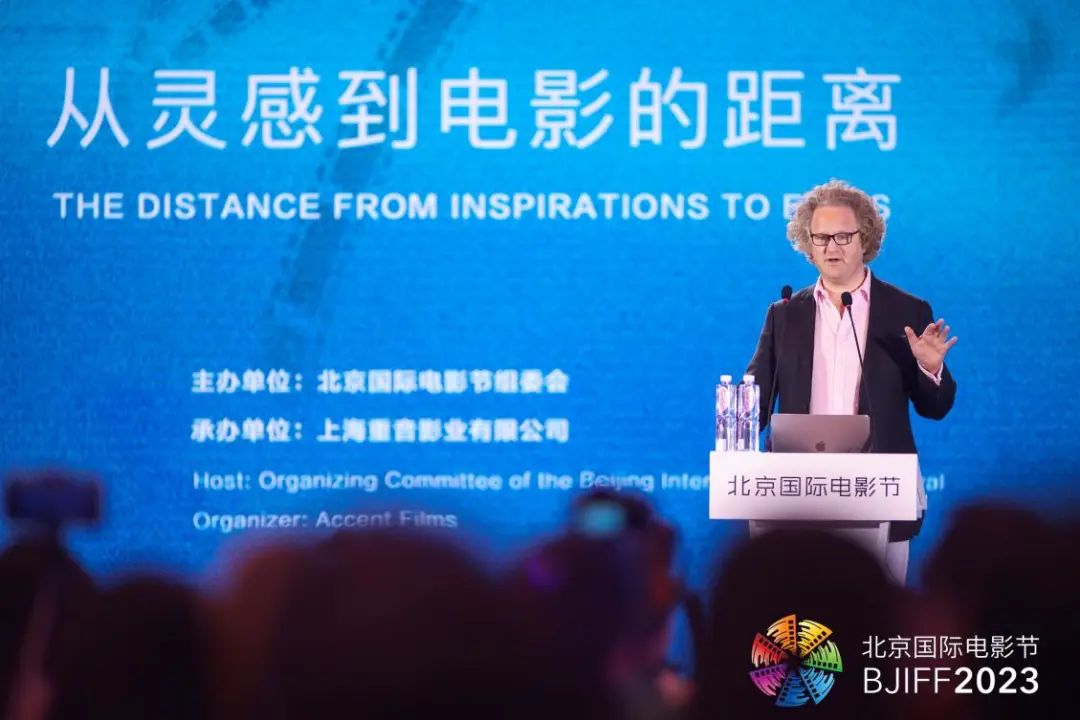
Florian Henckel von Donnersmarck Workshop & Masterclass
Moderator: We are honored to have Florian Henckel von Donnersmarck, renowned German director and screenwriter, with us as the keynote speaker of the Workshop & Masterclass today. He is an old friend of the Beijing International Film Festival (BJIFF). Back in 2016, he served as a jury member of the Tiantan Award, Competition Section of the 6th BJIFF. This time, he’s going to share with us his secrets of filmmaking, and everything about the distance from inspirations to films.
Florian Henckel von Donnersmarck: Hello everyone! I bet most of the attendees are either directors or directors-to-be. It’s fair to call you all colleagues. It’s important to be sincere with colleagues. So, I’ll be very open and honest with you about how I gained success.
What is director? What does a director do? Sometimes, those questions are hard to answer for those that don’t know much about our job. They might ask, do you write the screenplay? I would say, not necessarily. They might ask, do you organize the entire film shooting? I would say, it’s producer’s job. They might ask, are you the camera man? I would say, no, that’s cinematographer’s job. They might ask, are you the guy that tells actors and actresses what to do? I would say, they are very clever and they usually know what they should do.
There are many clever minds on set. Director is probably not the cleverest. You draw not as well as designers do. You are not as good at the techniques as the cinematographer is. Even when it comes to the subject matter of a film, for me, it’s mostly about history, you might not know as much as the historian on set does.
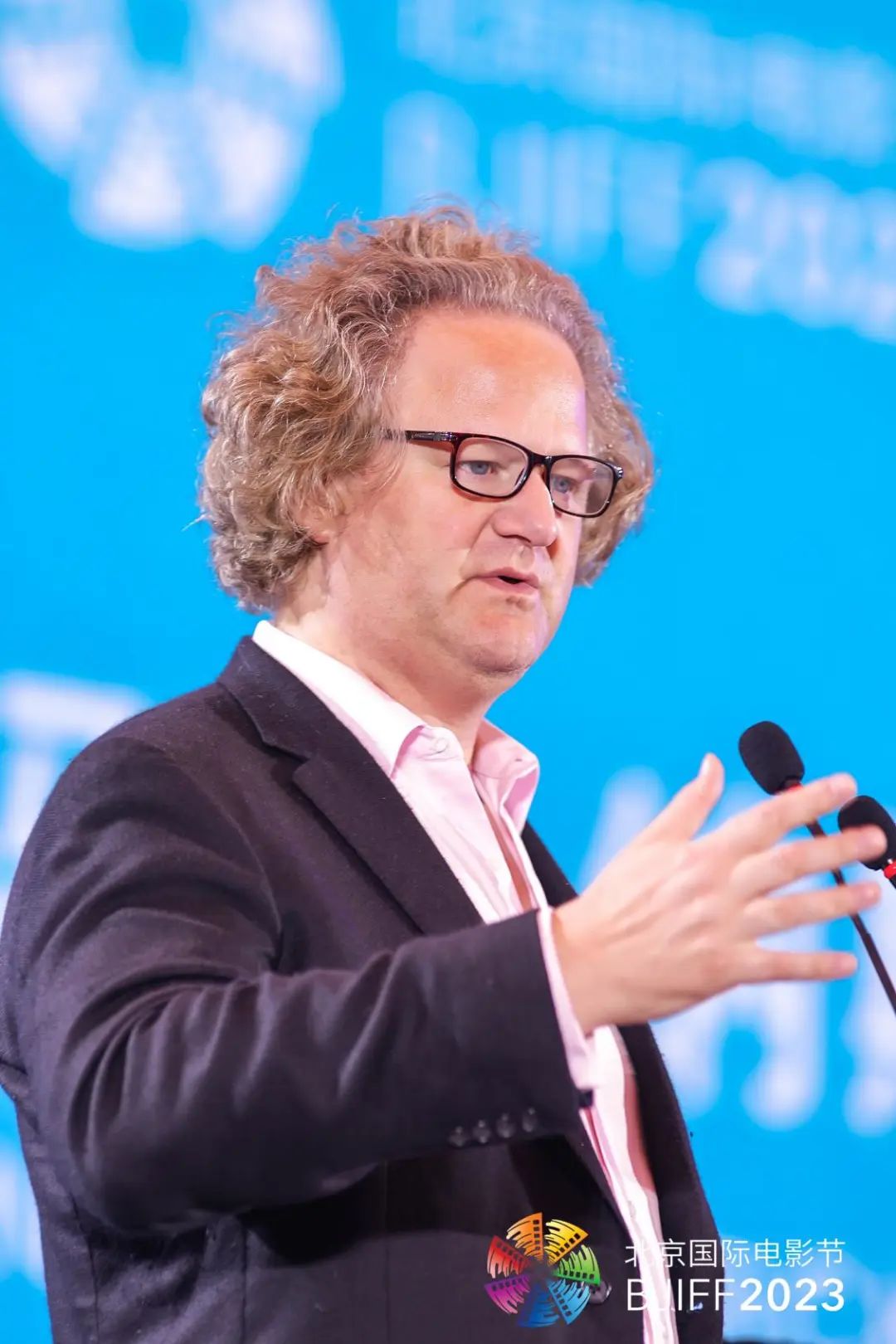
Florian Henckel von Donnersmarck
Then, why do you think tens of hundreds of personnel on set would do as you tell them to? You might need “illusory” confidence to convince yourself. I think it can be a mindset that directors must have. Without it, you cannot be a director.
For me, the moment I have a flash of inspiration about a screenplay is very important. The very flash would urge me to write a screenplay, or listen to a story carefully. And then I’d devote several years of my life to making it into a film.
People always say that the subject matter of a film must be what you are interested in or fond of. It got to be associated with life experience. But I don’t think so. I’m very interested in mechanical watches. But it doesn’t necessarily mean that I have to make a film about mechanical watches. And my lifetime stories might not be as interesting.
You need to find a conversion. Let me give you an example of Anthony Minghella, director of The Talented Mr. Ripley. Anthony’s parents are Italian immigrants to the Isle of Wight, England. His father owned an ice cream shop. The Isle of Wight is a popular holiday resort for the English upper class in summer. He sensed that he had a long way to go if he wanted to be one of them.
Then what Anthony could make use of? When he got the novel, he believed it could be adapted into a film. The novel was adapted before, and it is very famous. Still, he had so much thoughts and feelings about the novel, and decided to make a new film. Anthony would return to the initial feelings and original thoughts he had when making a decision. So, if you can bear in mind the first moment of inspiration, you would not make mistakes in your film.
I follow my heart. I do hope that you’re brave to believe in yourself, too. As you’ve set foot on the path, you got to trust it.
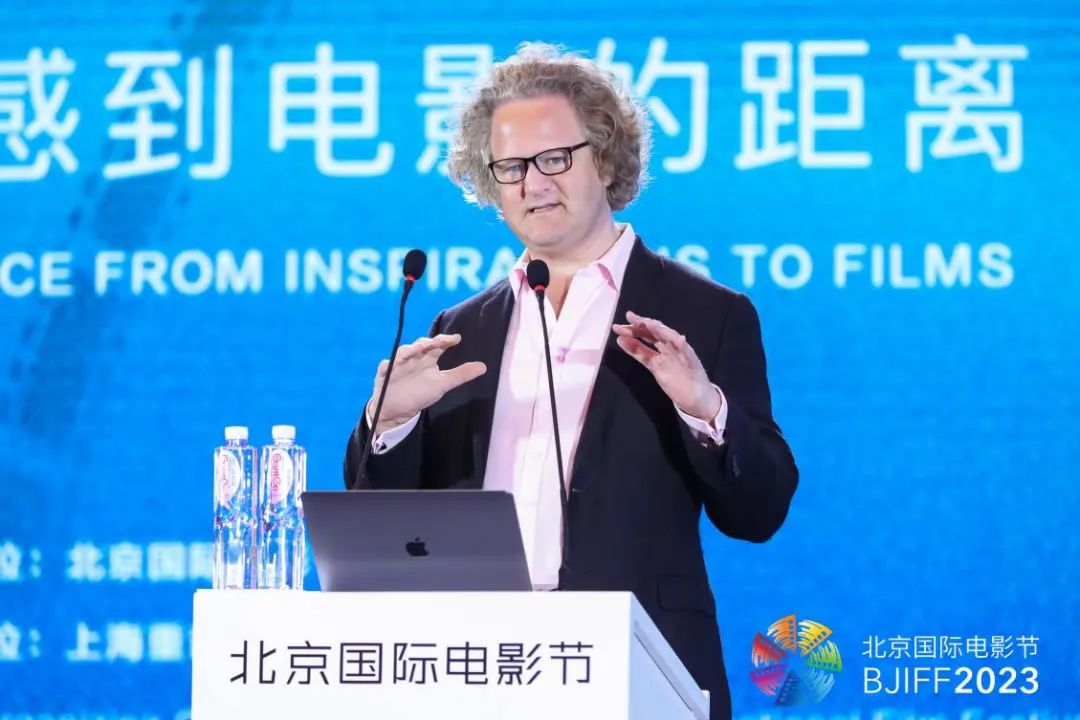
Florian Henckel von Donnersmarck
There is another mindset that I also find very useful. As a director, we are basically “walking detectives”. I often monitor the scenes closely. I would observe if any actor/actress tells a “lie”. I am like a lie detector to see if they sound genuine enough. Should I notice a “lie”, in other words, the line doesn’t sound genuine, I would call “cut” and approach the actor/actress.
I would tell them which part doesn’t sound genuine enough. Usually, I don't even have to finish my words. Because they know what I mean, and they sense the disingenuousness. Should it happen again, maybe during the third take, I would start thinking, alright, maybe there’s something wrong with my screenplay. The “lie” comes from the screenplay rather than the performance. I would try to change the lines and get rid of the “lie”.
That’s my second point: you must train the skill of lie detection, and tell if a line sounds genuine.
Besides, it’s fatal for young directors to believe that they should fully respect their first idea or thought. In other words, they wish to look authoritative. However, don’t be afraid of losing authority, making changes or lacking leadership in others’ view.
Directing is a different kind of job. You gotta make changes, offer them directing and ensure that the film wouldn’t be destroyed by your personal thoughts. Sometimes, you would encounter a situation where everyone follows your instructions, the light is ready, the cast deliver performance as you direct, but you compare the outcome with your initial idea, and find that it doesn’t work that well, it’s not what you want, or it doesn’t match your tone.
What I want to say is, there are many people that, despite long period of preparation, they may struggle to get everything to the best, but there is always uncertainty. So, it’s really important to admit your “mistake”. Normally, by the time you admit there is something wrong, you’d know what’s right. So don’t be ashamed. Admit it. Don’t be afraid of changing your idea even if it’s completely different from your original one.
I know many people would praise actors and actresses on set. But in my view, I don’t need to do so. Because after we work together for a while, if I say “okay, next”, that’s actually the best compliment because for the actors/actresses, that means there’s nothing in the scene that makes me uncomfortable.
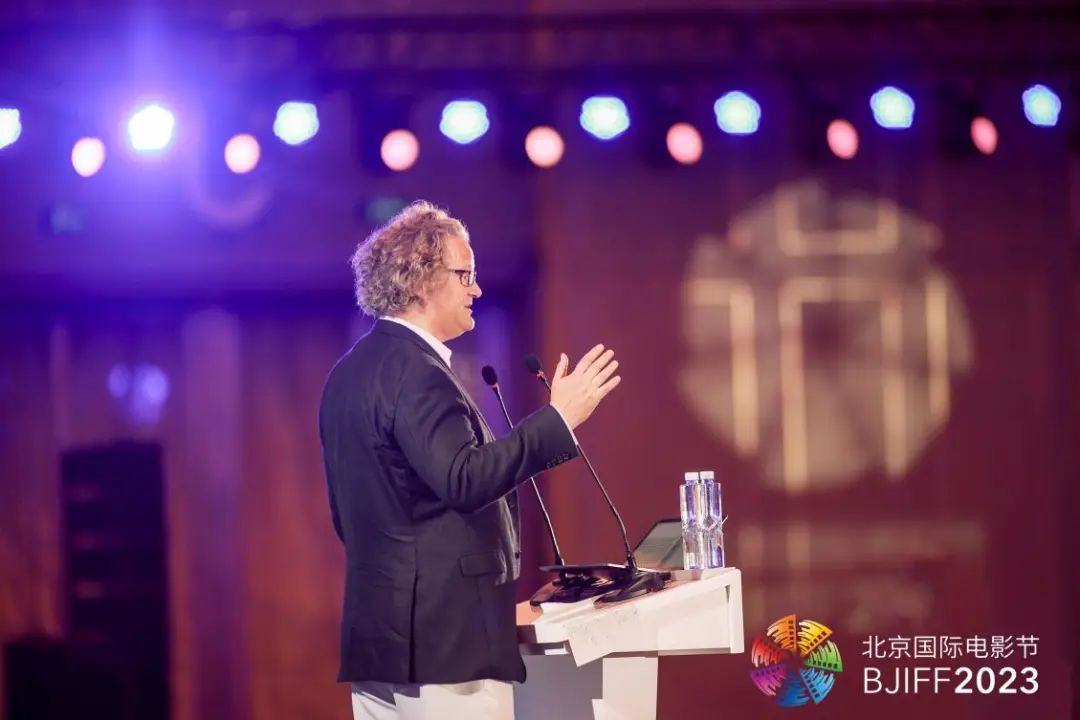
Florian Henckel von Donnersmarck Workshop & Masterclass
Meanwhile, the setup of camera positions and editing are very important.
A prominent editing master wrote a book titled In the Blink of An Eye, in which he put forward a great theory. He asked if we can think of a film to be edited as a continuous flow of action. Make a cut every three seconds, and switch the camera position. Can we not do that? He mentioned there is a pause of life every three seconds, i.e. blink of eyes. It takes about three seconds to blink and open eyes again. There is a moment during the closing of the eyes when we can't see anything but our brain connects scenes we saw last second with what we will see next second.
That’s what we do in the filmmaking process. That’s how we make cuts.
Interestingly, those films with the smoothest flow actually cuts every three seconds. The rhythm is similar to blink of eyes. So, there are probably 20 shots in one minute, and 1,800 shots in a 90-minute film. Usually, if you have a great crew, you can make 30 to 60 shots per day, and it takes approximately 60 to 90 days to shoot a film.
Young directors are often concerned if they don’t know where to set up the cameras and if sequences of shots are original. As a matter of fact, that’s not what you should be concerned about. You just need to ask yourself, if you could predict the future and see where best camera positions are, just put them there.
Sometimes, we need to set up a camera on a stand, or use a drone to shoot from air. But more of the time, we just need to do the simple thing. Don’t overthink it. More often than not, simply ask yourself, if you were in the scene, where you’d be able to see all the interesting parts you wish to.
My next point is, as directors, don’t give too much directing to actors and actresses. Many directors fear failure when directing for the first time. It’s mostly due to too much directing. For instance, in a scene where an actor/actress is supposed to be very sad, the director monitors the shot and thinks he/she is not sad enough. But very often, sadness is barely noticeable. Don’t push an actor/actress to express more emotions.
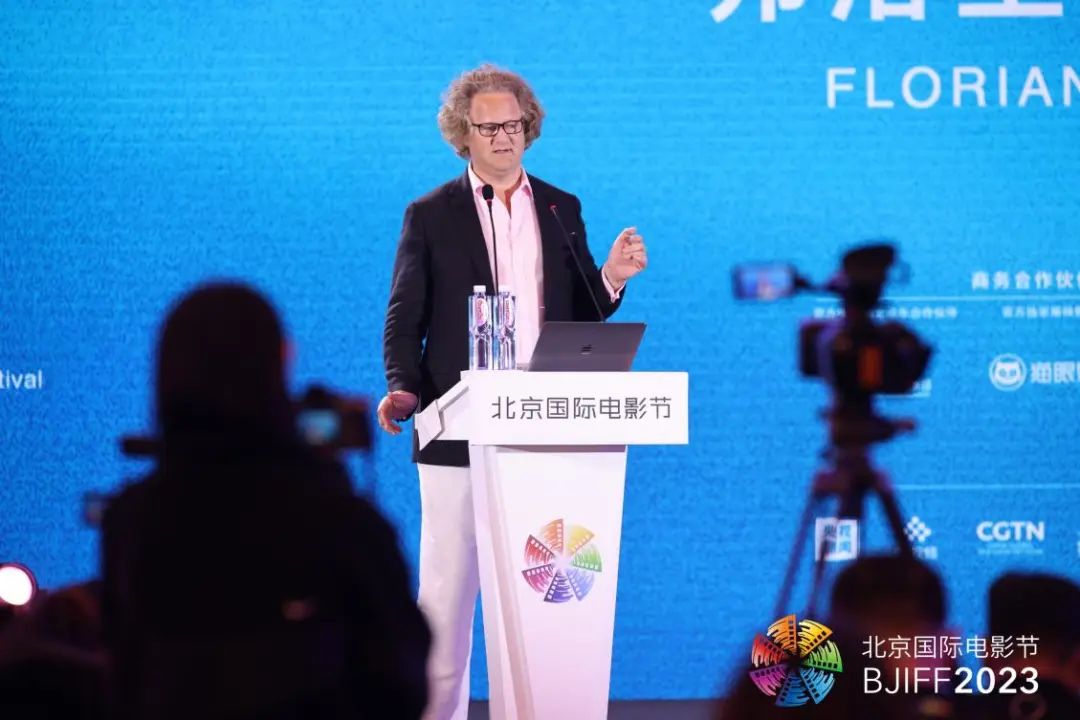
Florian Henckel von Donnersmarck Workshop & Masterclass
At the Opening Ceremony of the BJIFF, clips of the film The Great War directed by Chen Kaige were screened. I can tell from those short clips that he is an outstanding master. His film has very good sound effects, grand scenes and cinematography. Besides, we can see that the cast didn’t over-act. The characters are risking their lives in a war under special and extreme circumstances, but they remain dignified in silence.
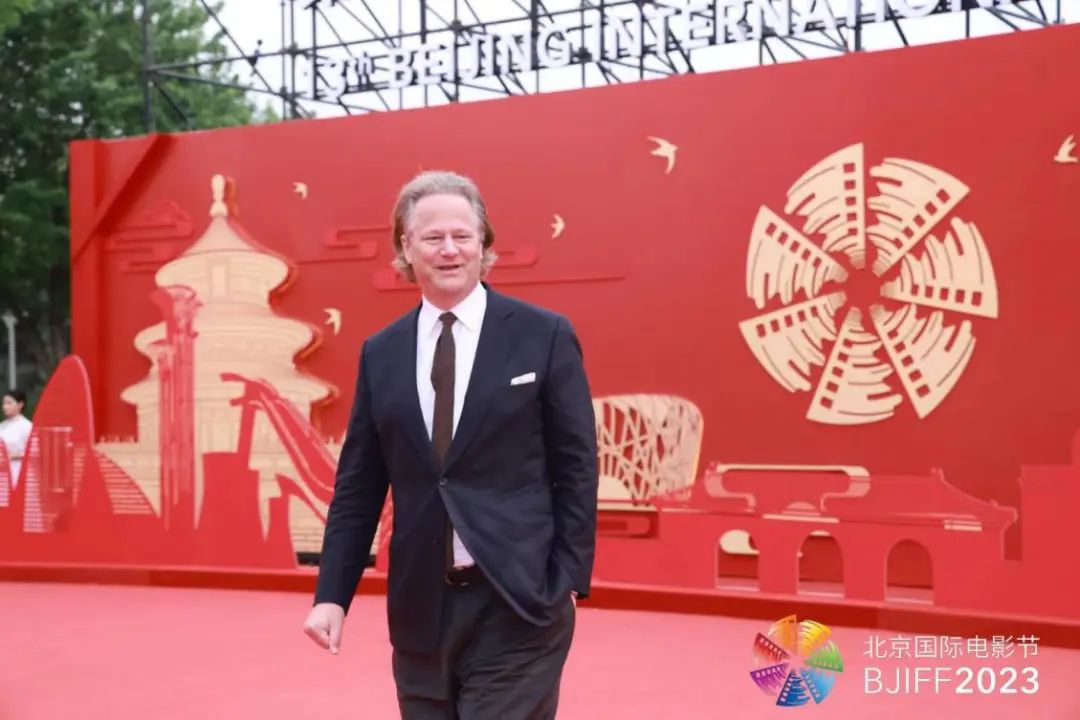
Florian Henckel von Donnersmarck at the Red Carpet for the 13th BJIFF Opening Ceremony
A female film experimenter did an experiment. She made different editing of the same thing. People have various understandings of the thing based on different edited versions. She put the cut behind the bars and asked others how the person looks, if he is not happy, and if it can be told that the living environment in the prison is really awful. Then, she put the same cut next to a cake and asked others if it shows the person is very hungry. In this sense, our understanding of shots and reaction are fully subject to the environment.
If you want to be a director, you’re probably not going to get a very good screenplay for your debut film, unlike director Lu Chuan or Zhang Yimou does. If you really wish to get a great screenplay, you’ll have to writer it by yourself. I think every director may learn screenplay writing because many techniques are in common.
First of all, you need to understand the structure. I know a few books. If you already have inspirations about a screenplay and plan to write them down, go and get the books I recommend. Write your ideas in blank spaces of those books. Push yourself to do it as it’s very useful for you to become a better screenwriter.
The first book, Screenplay: The Foundations of Screenwriting, is very helpful. It can help you avoid mistakes. The books tells you how many acts a film should be comprised of, how long a film should be, risks of a film being too long or short, and structure of a film.
Besides, I recommend you to read through the Memo from the Story Department: Secrets of Structure and Character by Christopher Vogler. The book analyzes the common characteristics of classic films. Christopher Vogler talks about first-time filmmakers and factors missed in a film, and demonstrates how to integrate the plot and subplots.
Those are the two books I recommend you to read. Of course, I’ll summarize other points for you. For example, there is a common mistake that young directors would have when making their first film. The protagonist of a good film should keep overcoming difficulties, but the film won’t be so good if the protagonist overcomes a small difficulty, then a bigger one, followed by an even bigger one, and then a small one out of blue. Usually, difficulties follow one another, and it gets more severe and worse. Please be noted that if your protagonist has difficulties to overcome, those difficulties should get harder and harder so that the protagonist keep growing up.
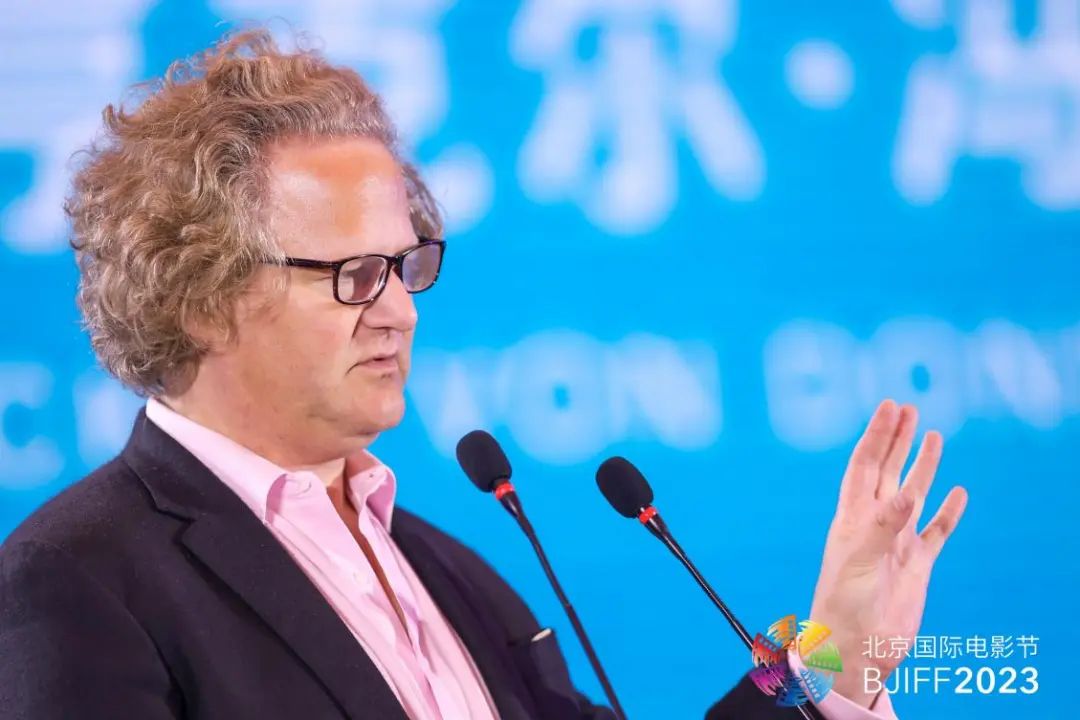
Florian Henckel von Donnersmarck
Moreover, endings are also very important. I wouldn’t start writing a screenplay before I conceive a good ending. The ending should combine all the elements of a film in an unexpected and surprising way. Take the example of The Godfather. Al Pacino played a young man, whose father is a mafia. Everyone is afraid of his father. The character played by Al Pacino says he would not be like his father. But in the end, once a compassionate kid, he kills his father’s enemies and becomes the man he doesn’t want to be. It’s a very powerful ending. It’s also unexpected for the audience, both narratively and visually.
In addition, lines are also crucial for filmmaking. Many people say that film is a visual art and lines don’t matter. But I think dialogue is very important. When I went to film school, our professor said he would teach everyone how to write very good lines.
He asked us to wear a hidden mic for the following week, record all the conversations at home, school, bars or gyms, transcribe them on computer at home at night, from which we would understand what natural conversations are like.
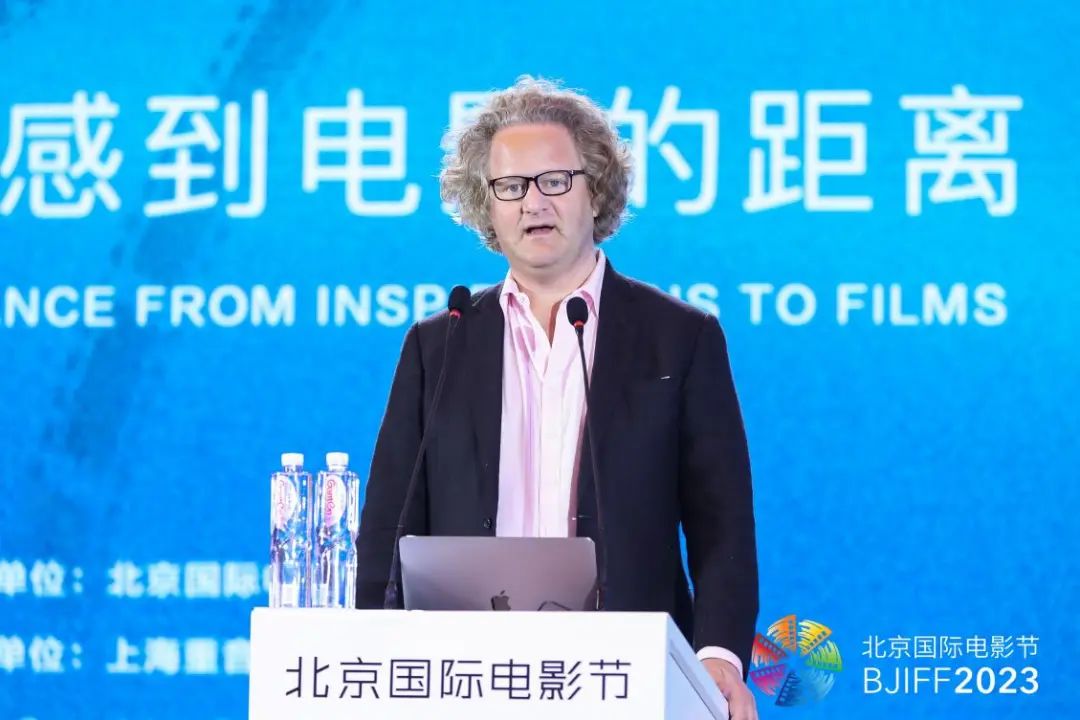
Florian Henckel von Donnersmarck
Last but not least, I hope everyone can make their voice heard. And bring happiness, harmony and light to the world as a director. It’s very easy to play a negative role. There are many ways to be disliked or hated. But it’s always hard to be liked. It’s the same with directors. It’s not easy to make a hopeful, kind and positive film. But I hope you’d choose the hard path. Thank you!
Audience: Director, thank you for your remarkable speech! My question is, what do you think are the differences between making a short film and feature film? Besides, as a young director, how can I make better short film assignments at school?
Florian Henckel von Donnersmarck: Thank you for your question. It’s a good one. I spent more than 10 years on short films. I guess I spent too much time on them. In my opinion, short films are helpful. They enable you to spot basic problems. That’s the most important. I remember I had a great idea for my first short film. As a director, I asked a friend to read the lines. But they sounded awful, something like “Come on, we are two hours late.” The tone was just like what I did. But it sounded very weird. That’s a lesson you can learn from short films.
I think it’s hard to make a great short film. It’s more important to make mistakes. Forge ahead and make mistakes. My advice for making a short film is to keep it as concise as possible. A short film without dialogue is the best, and most successful. Make it shorter and minimal. Even 4 minutes will do.
When you are able to make a feature film one day, and you believe that you have a good command of all the basics about acting and directing, go for it! It was different in my time. It was very costly to make a film. We didn't even dare to think about making a feature film. I met a lot of young people, some of whom are making feature films with their own equipment. But it was impossible for me. So I chose to start with short films. You can ask friends and shoot part of it every weekend. By the end of a year, you can complete the shooting. As long as you are technically ready for making feature films, just do it. The narrative is different between short film and feature film. Just like how different it is to write a short story from writing a joke, in which case a short film is compared to joke. If you are a great joke writer, it doesn’t necessarily mean you are a good short story writer. They are rather different.
It’s rather a complex question. But I’d encourage you to make feature films if you have the chance.
Audience: Hi, director, you mentioned earlier that young directors should be brave to trust their instincts on set, how did you manage to differentiate such instincts from negative emotions caused by anxiety or nervousness on set?
Florian Henckel von Donnersmarck: That’s a great question. When defining the subject matter, make sure it’s exciting for you, it’s what you can’t help sharing with others, or it’s very touching, as if you’d cry when sharing the story with others. Such feelings may vanish in a year. You would feel very tired and bored. But during the process, keep reminding yourself of the first feelings, and why you were willing to devote so much time to the screenplay in the first place. If you can recall such feelings, you’d bear in mind why you did so. When you shoot a film, you should feel like it’s your wedding on set. Make sure everything is what you want. In case you find anything uncomfortable around you, get rid of it.
If you feel nervous when shooting, there is something wrong on set. Every director encounters it at certain point. For instance, I was shooting my last film Never Look Away. One day, I was on set to shoot a very simple scene. All of sudden, I felt something was off. I didn’t know why. But it does happen sometimes. In such case, you should step back and think: I shot countless more complex scenes before, how worse could it get? So I think there are definitely moments of doubt like that. But if you really feel very anxious, then the scene you’re trying to present isn’t as genuine as it looks.
We should be ourselves on the cast & crew. For example, there was once a discussion among the cast & crew about a complicated sequence of actions. Out boss asked how you were going to shoot the sequence. I said I didn’t know, and I’d like to brainstorm with members. It’s perfectly alright to say so. When I put together my own team, I only choose those I approve of. Back to the point. If you feel nervous, bring your team together. It’s perfectly fine to do so. I would do prep work before I shoot. On Monday morning, I would have a meeting with heads of all departments, and ask them to share with me what they are mostly worried and anxious about. Most of their problems won’t affect others. But it’s a brainstorming process. For instance, the boom operator says I need a device for better recording; the cinematographer may request the removal of certain metal surfaces; or our art direction may suggest that we shouldn’t shoot the rooftop or we should have carpet over there; our costume designer is very concerned about costumes to be put on in a scene. They can do that, and so can you. So, don’t worry about anything.
Moderator: Many thanks to director Donnersmarck and the audience for the Q& A. Lastly, I’d like to ask director Donnersmarck to express your message and expectations for young Chinese directors. What about your wishes for the BJIFF?
Florian Henckel von Donnersmarck: It’s my second visit to the BJIFF. I think it’s excellent, especially the Chinese government’s huge support in the film industry. It’s great that the Chinese government is supporting the film industry on such a large scale. It’s fair to say that China is the paradise for global films. Similar to the Peking Opera or any other art form, Chinese culture and art are paramount in the world. Here holds the future for films. I believe you all are blessed with abundant opportunities. I’ve seen numerous masterpieces produced in China, and Chinese films have attained remarkable results in the global film community. I also believe that you all are the future for films.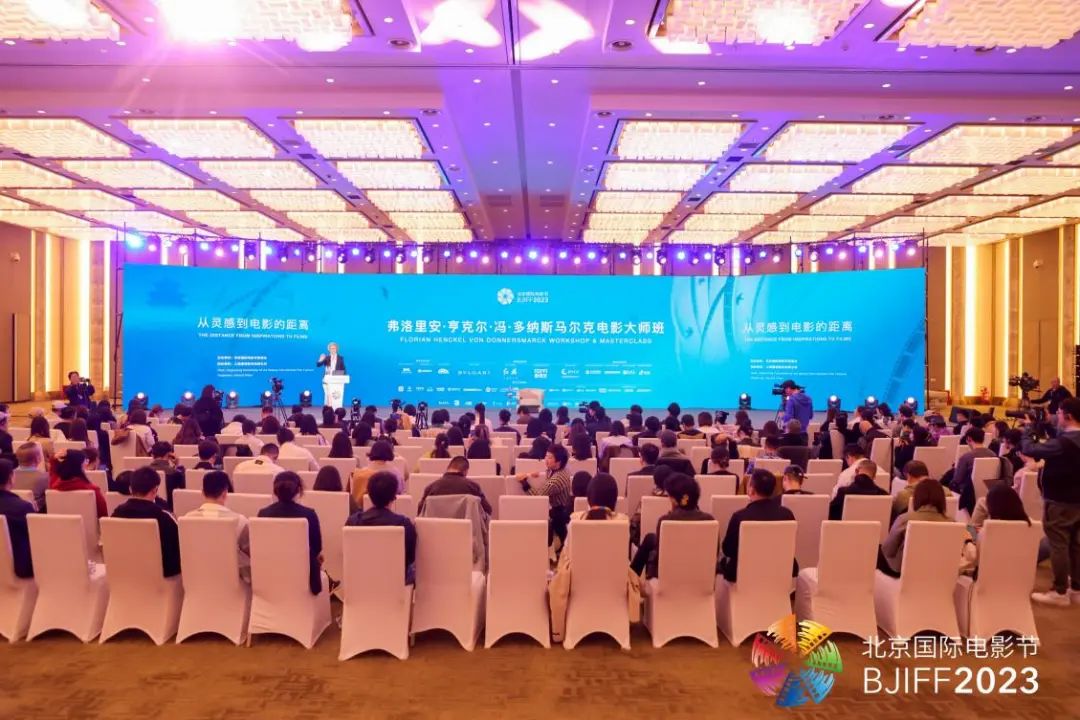

Florian Henckel von Donnersmarck Workshop & Masterclass
